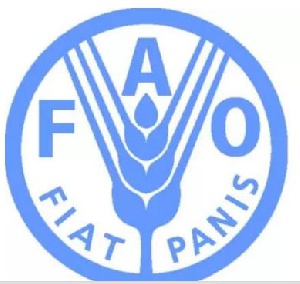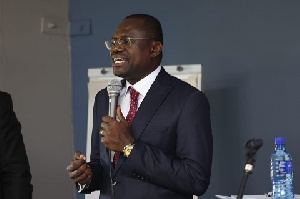The African, Caribbean and Pacific Group of States (ACP), Food and Agriculture Organisation of the United Nations (FAO), the Organisation Internationale de la Francophonie (OIF), have ended a symposium pledging to build new partnerships to empower women and youth.
The two-day event, saw governments, civil society, private sector and development partners debate key issues of jobs and entrepreneurship, with a special focus on how the mechanisms of South-South and Triangular Cooperation could help bring about change in developing countries across the ACP region and beyond.
A statement from the Food and Agriculture Organisation copied to the Ghana News Agency in Accra, said the symposium was supported by the Commonwealth Secretariat and the Community of Portuguese Speaking Countries (CPLP).
Participants examined key areas including the development of skills, enhancing institutional capacities, improving access to technology, land and efficient business services.
Patrick Gomes, Secretary General of the ACP Group of States, said African, Caribbean and Pacific countries have a long history of collaboration in various fields, including under the ACP-EU partnership framework.
“We are excited to share these experiences, and to highlight the added value of South-South and Triangular Cooperation in enhancing inclusivity, diversity, innovation and genuine partnerships,”
The statement said FAO is a longstanding facilitator of South-South and Triangular Cooperation – which sets a broad framework for collaboration among developing countries based on the concept of solidarity that breaks the traditional dichotomy between donors and recipients.
“The FAO is very pleased about this partnership with the ACP, and is eager to work together to deliver results under the 2030 Agenda – under which all member countries pledged to leave no one behind,” Laurent Thomas, Assistant Director-General for Technical Cooperation and Programme Management at FAO said.
He said with more than 85 percent of young people living in developing countries, expanding national and regional policies and interventions on youth employment is considered essential.
The statement said development agencies and countries including Benin, Mali, Mozambique and Uganda introduced their initiatives and projects at the symposium, as a catalyst to discussions on how similar techniques can be introduced elsewhere in the world to help combat hunger and improve rural livelihoods.
Among them were the ACP’s COLEACP Programme – a model which has been widely credited with bolstering trade to support smallholder farmers across Africa, the Caribbean, Europe and the Pacific.
Through it, small horticultural businesses from these regions are actively promoting sustainable trade and poverty alleviation.
A joint initiative implemented by four UN agencies and national partners shared lessons on promoting rural women’s economic empowerment, through providing them with access to knowledge and skills in simple ways such as using solar powered radios to connect communities. The programme spans seven countries and is working with 75,000 rural women.
FAO presented the Junior Farmer Field and Life Schools project, which was launched in 2003, is now in place in over 20 countries in Africa, Asia and the Middle East – providing support to over 25,000 young women and men.
Food security in these countries has improved and rural poverty rates have dropped.
Groups at the symposium agreed on an action plan to ensure that other ACP countries benefit from the shared experiences and best practices to fulfill their targets in line with the UN’s 2030 Agenda for Sustainable Development Goals (SDGs), including two key objectives to achieve gender equality and empower women and girls, as well as to promote decent work and economic growth the statement said.
Regional News of Friday, 19 February 2016
Source: GNA













